This article includes a list of general references, but it lacks sufficient corresponding inline citations .(October 2024) |

(publ. Hodder & Stoughton)
Cover art by Val Biro
My Brother Michael is a novel by Mary Stewart, first published in 1959. [1]
This article includes a list of general references, but it lacks sufficient corresponding inline citations .(October 2024) |

My Brother Michael is a novel by Mary Stewart, first published in 1959. [1]
Camilla Haven has recently broken her engagement to Philip and is holidaying on her own in Greece. She is sitting in a cafe in Athens writing to her friend Elizabeth, expressing insecurity in dealing with travel having been accustomed over 5 years to her ex-fiancé’s handling arrangements, when a man appears with a message about a hired car for Delphi. Camilla hasn't requested it, but no one else claims the car. She wants to visit Delphi, but was doubtful about being able to afford it. She's told that it is a matter of "life and death", that the person who hired the car for “Monsieur Simon” is “Simon’s girl”, and that the deposit has been paid. After the man leaves the car keys through a misunderstanding, Camilla finds the serendipity of the situation and the temptation to take the car irresistible. Under the pretext of finding out who “Simon” is who needs the car so urgently, she leaves her hotel address with the café's proprietor and sets out to drive the car to Delphi herself
On the way she meets Simon Lester. Simon, who had been a child during the war, is in Greece to learn more about the death of his brother Michael during the Second World War (some 15 years earlier). Michael Lester had been a British Liaison Officer to the Greek partisan group ELAS, and had written a letter home hinting at a significant discovery.
Some of the ruthless antagonists involved in theft, smuggling, and murder during the occupation of Greece in the war have now menacingly re-emerged on the scene. Camilla becomes involved in the increasingly complex and dangerous unraveling of the circumstances of Michael Lester’s death, as well as the rediscovery of an archeological treasure, which now threaten Camilla and Simon.
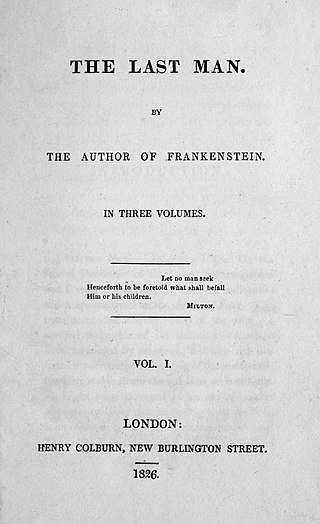
The Last Man is an apocalyptic, dystopian science fiction novel by Mary Shelley, first published in 1826. The narrative concerns Europe in the late 21st century, ravaged by the rise of a bubonic plague pandemic that rapidly sweeps across the entire globe, ultimately resulting in the near-extinction of humanity. It also includes discussion of the British state as a republic, for which Shelley sat in meetings of the House of Commons to gain insight to the governmental system of the Romantic era. The novel includes many fictive allusions to her husband Percy Bysshe Shelley, who drowned in a shipwreck four years before the book's publication, as well as their close friend Lord Byron, who had died two years previously.

Pythia was the title of the high priestess of the Temple of Apollo at Delphi. She specifically served as its oracle and was known as the Oracle of Delphi. Her title was also historically glossed in English as the Pythoness.
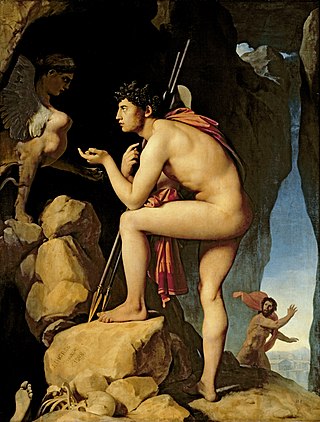
Oedipus was a mythical Greek king of Thebes. A tragic hero in Greek mythology, Oedipus fulfilled a prophecy that he would end up killing his father and marrying his mother, thereby bringing disaster to his city and family.

Eileen Mary Challans, known by her pen name Mary Renault, was a British writer best known for her historical novels set in ancient Greece.
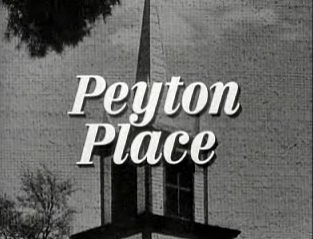
Peyton Place is an American prime-time soap opera that aired on ABC in half-hour episodes from September 15, 1964, to June 2, 1969.

In Greek antiquity, Hermione was the daughter of Menelaus, king of Sparta, and his wife, Helen of Troy. Prior to the Trojan War, Hermione had been betrothed by Tyndareus, her grandfather, to her cousin Orestes, son of her uncle, Agamemnon. She was just nine years old when Paris, son of the Trojan king Priam, arrived to abduct her mother, Helen.

The Delphic Sibyl was a woman who was a prophet associated with early religious practices in Ancient Greece and is said to have been venerated from before the Trojan Wars as an important oracle. At that time Delphi was a place of worship for Gaia, the mother goddess connected with fertility rituals that are thought to have existed throughout the ancient Mediterranean world. As needed to maintain the religious tradition, the role of sibyl would pass to another priestess at each site.
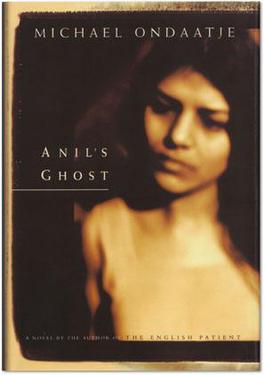
Anil's Ghost is the fourth novel by Michael Ondaatje. It was first published in 2000 by McClelland and Stewart.

Ion is an ancient Greek play by Euripides, thought to have been written between 414 and 412 BC. It follows the orphan Ion, a young and willing servant in Apollo's temple, as he inadvertently discovers his biological origins. As it unfolds the play is also the powerful story of his mother, Creusa, as she strives to guide her own life after having experienced terrible abuse at the hands of a god who is beyond her power. Euripides' retelling of this myth is a radical step forward among the Greek tragedies: while in other plays of classical Athens individuals often rail against the disasters that the Fates or the gods have caused to befall them, in this powerful play both Creusa and Ion actually challenge whether the gods have any right to govern the destinies of human beings. In the end, however, Euripides takes a step back from this precipitous development in human thought.

Fire from Heaven is a 1969 historical novel by Mary Renault about the childhood and youth of Alexander the Great. It reportedly was a major inspiration for the Oliver Stone film Alexander. The book was nominated for the "Lost Man Booker Prize" of 1970, "a contest delayed by 40 years because a reshuffling of the fledgeling competition's rules", but lost out to Troubles by J. G. Farrell.
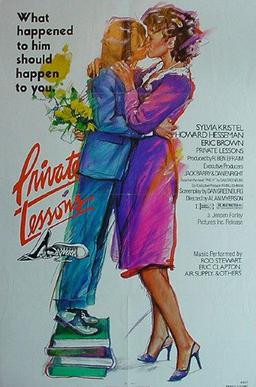
Private Lessons is a 1981 American sex comedy film starring Sylvia Kristel, Howard Hesseman, Eric Brown, and Ed Begley Jr.

Christopher "Chris" Partlow is a fictional character on the HBO drama The Wire, played by actor Gbenga Akinnagbe. Chris is Marlo Stanfield's second-in-command and bodyguard in his drug dealing operation. He is a minor antagonist for season 3 and the secondary antagonist in season 4 and 5 along with Felicia "Snoop" Pearson. Despite Chris's quiet demeanor he commits more murders, both on-screen and off-screen, than any other character. Although a ruthless killer, he shows genuine care towards the soldiers under his command, especially Michael Lee, whom he takes under his wing as a protégé.

Waterland is a 1992 British-American mystery drama film directed by Stephen Gyllenhaal and starring Jeremy Irons, Sinéad Cusack and Ethan Hawke. It is based on Graham Swift's 1983 novel of the same name. The film moved the contemporary location of the novel from England to Pittsburgh and eliminated many of the extensive historical asides.
As the World Turns is a long-running soap opera television series that aired on CBS from April 2, 1956, to September 17, 2010. Its fictional world has a long and involved history.
Camilla Dufour Crosland was an English writer of fiction, poetry, essays and sketches. She also translated some plays and poetry by Victor Hugo.
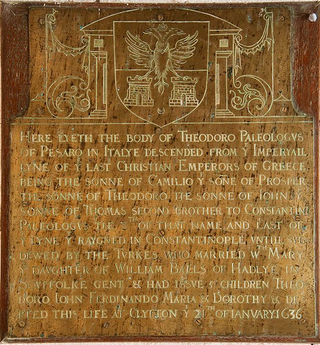
Theodore Paleologus was a 16th and 17th-century Italian nobleman, soldier and assassin. According to the genealogy presented on Theodore's tombstone, he was a direct male-line descendant of the Palaiologos dynasty, which had ruled the Byzantine Empire from 1259 to its fall in 1453. Though most of the figures in the genealogy can be verified to have been real historical figures, the veracity of his imperial descent is uncertain.